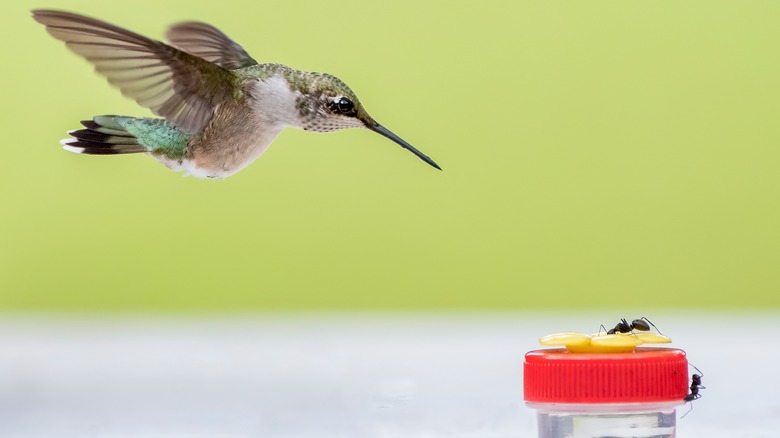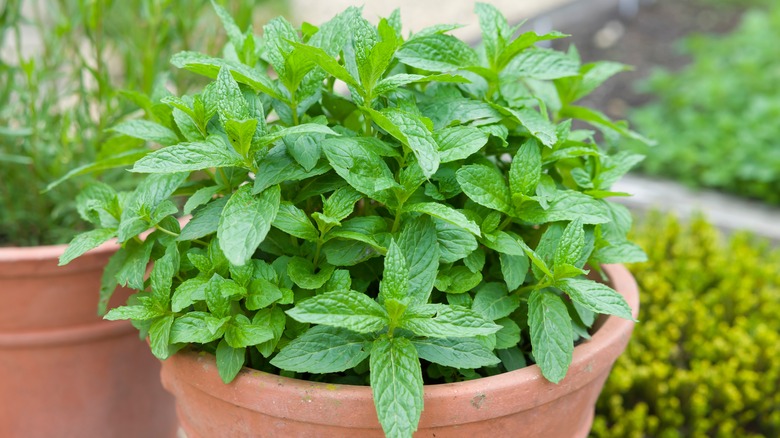Keep Ants Out Of Hummingbird Feeders With Fresh-Smelling Herbs
When attracting hummingbirds to your garden, you might already have the perfect feeder with fresh nectar that's also free of red dyes that could potentially harm them. After all this work, it can be discouraging to have ants take over. Not only are the ants attracted to the sweet nectar, but their presence also deters hummingbirds from the feeders originally intended for them. Before you reach for a commercial ant repellant that can be dangerous for hummingbirds, you might consider natural methods to keep these insects away from feeders. Some hummingbird enthusiasts advocate for using mint leaves and bay leaves, though these may not be 100% effective in making ants steer clear from nectar-containing feeders.
Proponents of using mint and bay leaves argue that ants don't like the smell of these plants, and will subsequently avoid areas that have them. In theory, you could plant them near hummingbird feeders, or possibly pick off a few leaves if the plants are in a different location, and then place them strategically around where you have the feeder hanging up to prevent ant access. Mint is thought to help repel ants, as well as fleas and mice. The plant is best grown in containers due to its invasive nature that can make it quickly overtake other plants in your garden. As such, you may place containers of this clean-smelling herb to help manage pests near your hummingbird feeders. Less is known about getting rid of ants with bay leaves, although some people have reported success with strategically placing individual leaves around areas where ants might enter.
Other ways to keep ants away from your hummingbird feeders
It's not clear whether mint and bay leaves are guaranteed to keep ants away from hummingbird feeders. If they do, you'll need to maintain the plants or place fresh leaves around the feeders on a frequent basis. While you can certainly experiment with these plants to see if they work against ants, you might consider other tried-and-true methods of repelling ants against hummingbird feeders, too. You might even use a combination of ant-deterring methods to protect your hummingbirds from pests you don't want anywhere near their feeders.
First, consider buying a feeder that is dripless and less likely to leak when heat increases pressure in the bottle. Fewer leaks will subsequently attract fewer ants. You can also consider purchasing a feeder with a built-in moat you can fill with water that will act as a barrier against the ants. Some people also suggest using small amounts of petroleum jelly to help prevent ants from crawling to the feeders. The idea here is to apply it as a barrier on either the fishing line or string connected to the feeder. The downside is that petroleum jelly could leak onto the hummingbirds and get stuck on their feathers and wings. Keep these dangers in mind before using petroleum jelly as a potential last resort against ants.

